Aspirins and other pain relievers common in most homes can be poisonous to pets. Never give acetaminophen (Advil, Tylenol and the like) to a dog or cat. The drug produces abdominal pain in dogs and affects the blood oxygen levels in cats, producing severe depression. Never give your pet a dose of "ALEVE" (naproxen). Call the Blue Grass Veterinary Hospital immediately should your animal ingest medication or a toxic substance.
Many lawn and garden pesticides are neurologically poisonous to pets. These may include insecticidal aerosols, dips and certain shampoo products. Additionally, using a flea control product that is intended for dogs on a cat can result in poisoning.
Sugar free gum and candy also contains a product called "Xylitol" that is poisonous to your pets.
Coumarins (D-Con) are rat and mouse poisons that affect the blood's ability to clot. Your pets can be affected in the same way, even if they eat a mouse that has been poisoned. If your pet ingests these products, contact the Blue Grass Veterinary Hospital immediately.
| Poison Control | www.aspca.org/pet-care/poisoncontrol |
| 1-800-213-6680 |
The list below is a guide to common house and garden plants and foods that are toxic to most animals.
Toxic Foods:
- Alcohol
- Avocados (leaves, seeds,stem, fruit, skins) - birds, dogs and pocket pets
- Caffeine
- Castor Beans (Ricinus communis) seeds
- Chocolate
- Coffee
- Garlic (Allium spp.) bulbs, bulbets, flowers, stems
- Grapes
- Macademia Nuts
- Moldy food
- Nutmeg
- Onions (Allium spp.) bulbs, bulbets, flowers, stems
- Onion powder
- Raisins
- Salt
Toxic Plants:
- Aloe (Aloe spp.) sap
- Almond (Malus spp.) kernel of pit
- Amaryllis Bulb (Brunsvigia rosea) bulbs
- Apricot (Prunus armeniaca) kernel of pit
- Avocados (leaves, seeds,stem, fruit, skins) - birds, dogs and pocket pets
- Azalea (Rhododendron spp.) leaves & honey from flower nectar
- Bleeding Hearts
- Buckeye (Aesculus spp.) nuts & twigs
- Calla Lily (Zantedeschia aethiopica) leaves
- Cherry (Prunus spp.) (kernel in the pit)
- Choke Cherry (Prunus spp.) (unripe berries & kernel in the pit)
- Chrysanthemums
- Crocus Bulbs (Colchicum spp.) entire plant
- Daffodil (Narcissus pseudonarcissus) bulb
- Daisy (Chrysanthemum spp.) sap
- Dumbcane (Diffenbachia spp.) leaves
- Eggplant leaves

- Foxglove (purple) (Digitalis purpurea)
- Garlic (Allium spp.)
- Holly (Ilex spp.)
- Hyacinth Bulbs
- Hydrangea (Hydrangea macrophylla) flower bud
- Iris (Iris spp.) rootstock
- Japanese Pieris
- Jimson Weed
- Kalanchoe
- Lilly of the Valley (Convallaria majalis) whole plant, including smoke from burning & water in which plants were placed
- Marijuana (Cannabis sativa) leaves & stems
- Mistletoe (Phoradendron spp.)
- Misletoe Berries
- Morning Glory (Gloriosa spp.) entire plant
- Mushrooms, Posionous (Amanita spp.) entire fungus
- Onion (Allium spp.) blubs, bulbets, flowers, stem
- Poinsetta (Euphorbia pulcherrima) leaves & stems
- Poison Ivy (Toxicodendron spp.)
- Potato (Solanum spp.) (immature fruit)
- Tomatoes (leaves and stems)
- Tobacco Products
- Trumpet Vine (Datura arborea) foliage & seeds
- Tulip (Tulipa spp.) bulbs
- Yew (Taxus spp.) most parts of the plant, including seeds but not the red aril
